Bellicon and JumpSport rebounders differ in three critical areas: design, price, and bounce experience. JumpSport offers superior stability with arched legs and sits lower to the ground at 12.5 inches, while Bellicon provides extensive customization options but at a premium starting price of $649. Your workout experience varies too—Bellicon delivers a softer “bounce-up” sensation while JumpSport provides firmer resistance. Understanding these differences will help you choose the right investment for your fitness journey.
Design and Stability: Key Structural Differences That Impact Your Bounce
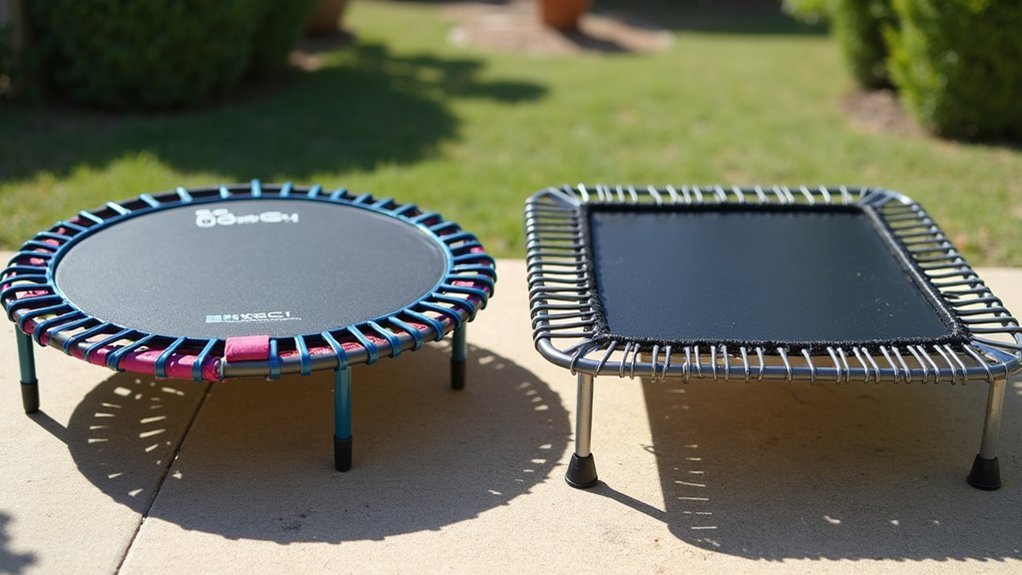
When choosing between Bellicon and JumpSport rebounders, understanding their structural differences is essential for finding the right fit for your workout needs.
JumpSport’s signature arched legs provide superior stability, greatly reducing tipping risks during intense workouts. Their thicker frame tubes also guarantee longevity under repetitive use.
If accessibility matters to you, JumpSport’s lower-to-ground design makes getting on and off easier for certain exercises. The 12.5 inch height creates a lower center of gravity that enhances overall stability during dynamic movements. You’ll appreciate JumpSport’s adjustable tension system, allowing you to customize bounce firmness based on your workout intensity or personal preference.
Bellicon counters with better storage options, particularly with their folding leg models—a valuable feature if you’re working with limited space.
Both designs deliver quality rebounding experiences, but these structural differences directly impact how your trampoline performs during daily use.
Price-to-Performance Analysis: Is Premium Worth the Investment?
Beyond structural differences, your investment decision between Bellicon and JumpSport ultimately hinges on what you’re getting for your money. While Bellicon starts at $649 and can approach $1,000 with upgrades, JumpSport offers its 350 series at around $400 with comparable durability. The shorter height of JumpSport models offers enhanced safety and accessibility for users of all ages.
| Feature | Bellicon | JumpSport |
|---|---|---|
| Starting Price | $649 | $400 |
| Customization | Extensive options | Limited options |
| Bounce Type | Softer, premium feel | Adjustable firmness |
| Long-term Value | No lifetime warranty | 1.6M+ bounce cycle testing |
When considering daily use over ten years, either trampoline costs about 5 cents per day. JumpSport provides more stability with arched legs and adjustable firmness, while Bellicon justifies its premium with customization options like folding legs and larger diameters.
Exercise Experience: How Bounce Feel Affects Your Workout Results
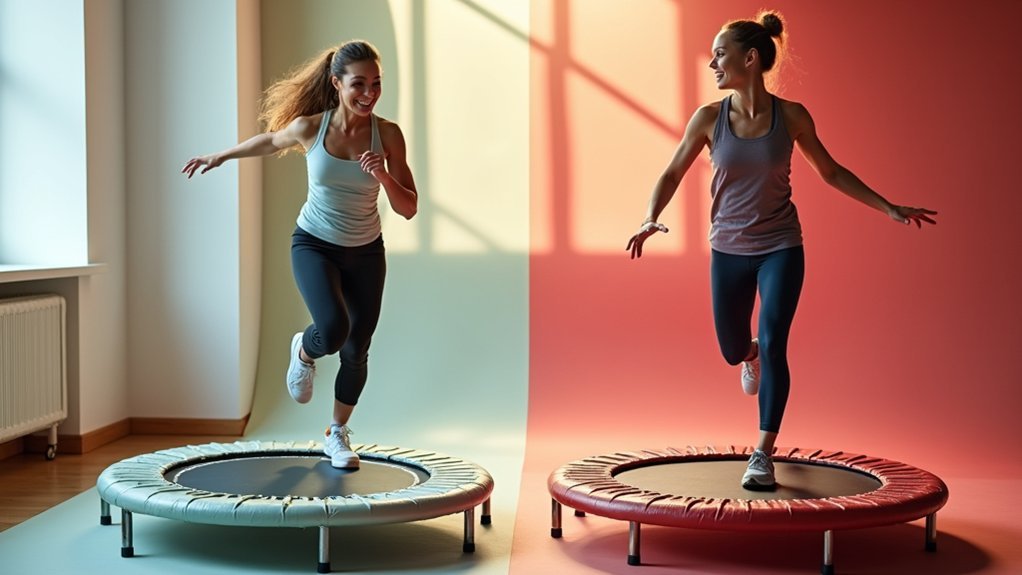
The bounce feel of your rebounder greatly impacts your workout effectiveness and enjoyment. Bellicon offers a softer bounce even with stronger bungees, while JumpSport provides a firmer rebound experience. This difference fundamentally changes your exercise focus—Bellicon emphasizes the “bounce-up” sensation, while JumpSport creates more resistance on the push-down phase.
Both rebounders effectively engage multiple muscle groups and promote lymphatic drainage, but the experience varies considerably. JumpSport’s firmer surface can help you burn as many calories as running but in less time. The JumpSport’s design keeps you lower to ground, making it safer and more convenient for stepping on and off during interval training.
Meanwhile, Bellicon’s softer bounce might feel more gentle on your joints. Your preference between these distinct bounce feels should align with your workout goals—whether you’re seeking higher intensity training or gentler, recovery-focused sessions.
Frequently Asked Questions
Which Model Folds for Better Storage Options?
For better storage options, Bellicon’s 49″ foldable model offers superior space efficiency with its flat-folding legs. You’ll find it easier to store under beds or in closets compared to Jumpsport’s wider folded profile.
How Long Do Bungee Cords Typically Last Before Replacement?
Bungee cords typically last 1-2 years in commercial settings or between 10,000-400,000 bounces depending on quality. You’ll need replacements sooner with heavy use, high-impact workouts, or if you notice fraying or uneven tension.
Can Children Safely Use Either of These Rebounders?
Children can use both rebounders but only with adult supervision. JumpSport offers better stability with its arched legs design, while both brands emphasize that children should never use these products unsupervised.
Are Replacement Parts Readily Available for Both Brands?
Bellicon offers complete replacement parts including mats, bungees, and frames with clear warranties. You’ll find everything through their official store. Jumpsport’s replacement availability isn’t well-documented, likely requiring third-party retailers for parts.
Which Rebounder Is Better for People With Joint Problems?
For joint problems, you’ll find Bellicon’s softer bounce better suited to your needs. It reduces impact stress considerably compared to JumpSport’s firmer bounce, making your workouts gentler on sensitive joints.
In Summary
When choosing between bellicon and JumpSport, you’ll need to evaluate your priorities. If you’re seeking premium bounce quality and don’t mind the higher investment, bellicon delivers unmatched performance. However, JumpSport offers solid stability and durability at a more accessible price point. Your fitness goals, budget, and preferred bounce experience should guide your final decision—both brands provide effective rebounding workouts with distinct advantages.
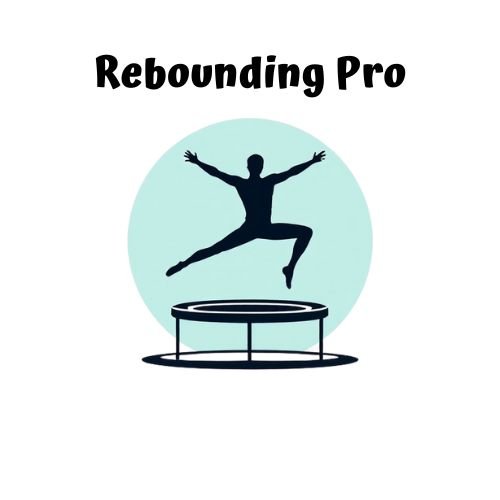
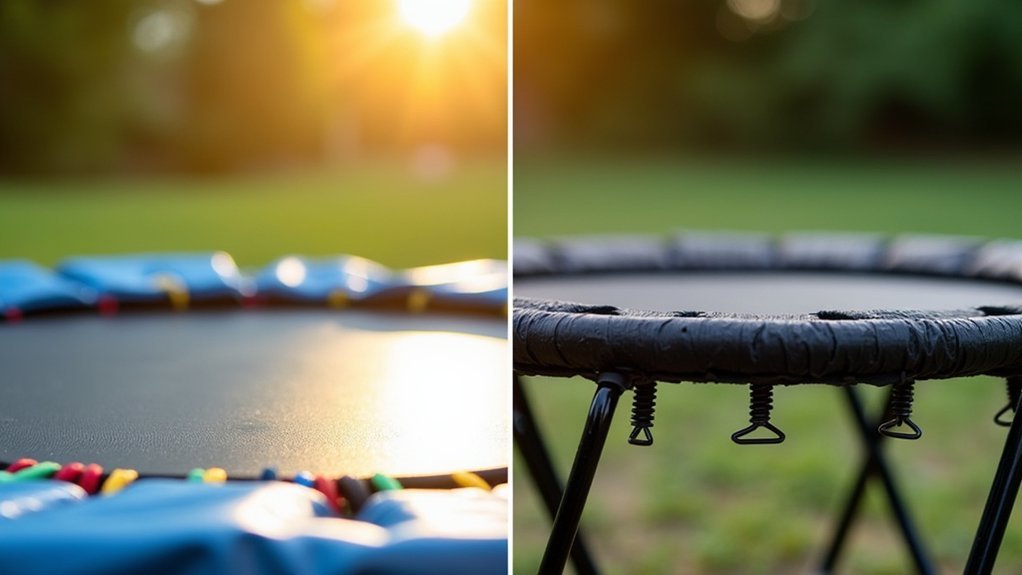


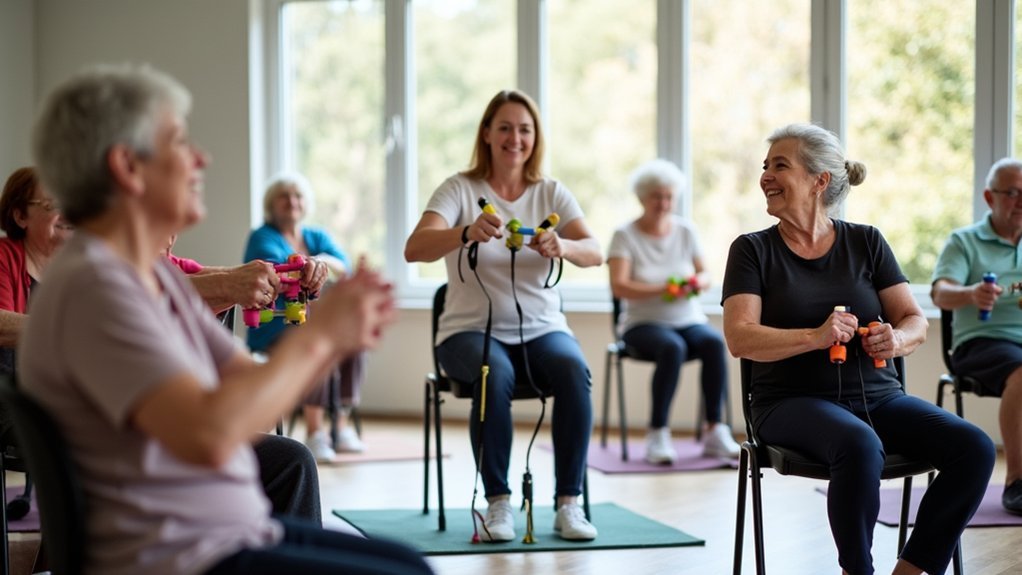
Leave a Reply